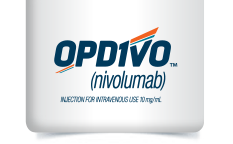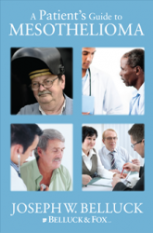
Opdivo Boosts Survival in Lung Cancer Patients, Could Benefit Mesothelioma Patients
In August, MesotheliomaCounsel reported on the “spectacular” results melanoma patients achieved when treated with nivolumab (Opdivo), an immunotherapy drug. Now, a new study reports lung cancer patients realized a nearly three month survival benefit with the drug over another treatment. These promising results give mesothelioma patients in the U.S. hope they will see similar results.
Opdivo is another case of an anti-cancer drug that targets a specific biomarker in order to combat the disease. This personalized, tailored approach to battling cancer offers patients a better chance of survival. It also helps move U.S. cancer care closer to achieving President Obama’s goal of bringing precision medicine to all Americans.
Opdivo has been approved by the U.S. Food and Drug Administration for use in the treatment of melanoma and lung cancer.
Read about treatments focused on specific biomarkers: the fibroblast growth factor, and c-MET receptor tyrosine kinase.
“This advance is not unlike other recent advances in treating lung cancer, conferring about three months additional survival,” said Dr. Norman Edelman, senior consultant for scientific affairs at the American Lung Association, in a Sept. 28 HealthDay article.
“This is yet another example of the advances we are making in the treatment of lung cancer using the approach of targeting specific tumor genes and their mutations,” added Dr. Edelman.
Opdivo, developed by Bristol-Myers Squibb, works by blocking the PD-L1 protein and activating the immune system, leading it to attack and kill cancer cells.
The Phase III clinical trial, known as Checkmate 057, was designed to compare the overall survival of non-small cell lung cancer patients, who had recurring cancer after completing a platinum-based chemotherapy treatment, after receiving either nivolumab or docetaxel. In the trial of 292 patients receiving nivolumab, and 290 receiving docetaxel, the median survival was 12.2 months versus 9.4 months, respectively.
In addition, after one year, the overall survival rate was 51 percent for the nivolumab group, as opposed to 39 percent for those who were treated with docetaxel. At 18 months, overall survival was 39 percent with nivolumab versus 23 percent for docetaxel.
The researchers reported that nivolumab was associated with even greater efficacy than docetaxel in patients who expressed PD-1.
“Now we have another tool, but we have to learn how to make it better so people can even live longer,” said lead researcher Dr. Hossein Borghaei, chief of thoracic medical oncology at Fox Chase Cancer Center in Philadelphia, according to HealthDay.
To find out more about the study see The New England Journal of Medicine.
See ClinicalTrials.gov for more information on the Checkmate 057 clinical trial.


 Mike is a licensed attorney and the former editor of North Carolina Lawyers Weekly and South Carolina Lawyers Weekly. He has contributed numerous articles to the North Carolina State Bar Journal and is a co-author of Capital Lawyers, a history of the Wake County (NC) Bar.
Mike is a licensed attorney and the former editor of North Carolina Lawyers Weekly and South Carolina Lawyers Weekly. He has contributed numerous articles to the North Carolina State Bar Journal and is a co-author of Capital Lawyers, a history of the Wake County (NC) Bar.
 Gregory Froom is a licensed North Carolina attorney and the former editor of North Carolina Lawyers Weekly and South Carolina Lawyers Weekly.
Gregory Froom is a licensed North Carolina attorney and the former editor of North Carolina Lawyers Weekly and South Carolina Lawyers Weekly.
Leave a Reply